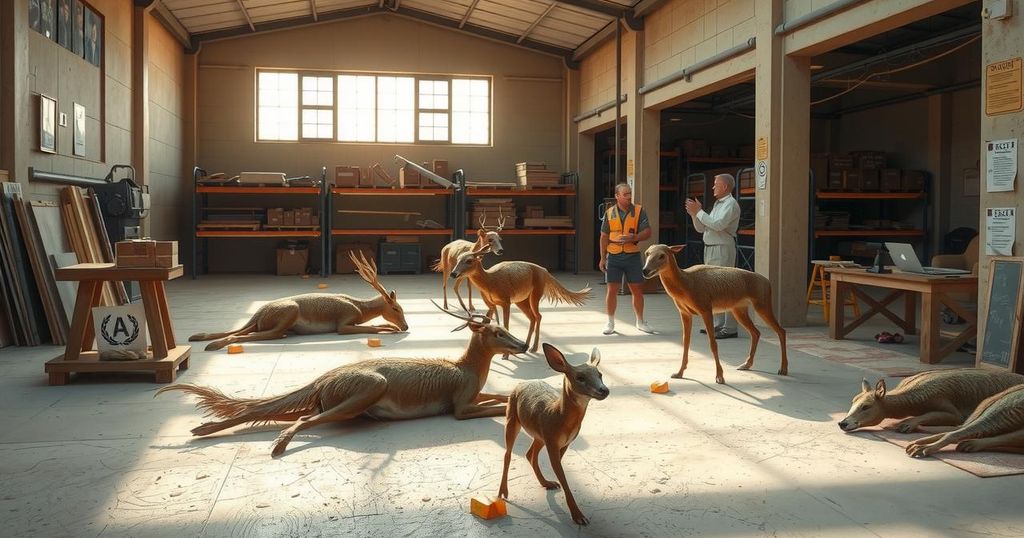Combatting Poaching: Inside South Africa’s Wildlife Forensic Academy
The Wildlife Forensic Academy in South Africa trains law enforcement and rangers to improve wildlife crime investigations amid a rising poaching crisis. Founded to enhance evidence-gathering techniques, the academy has trained over 500 individuals, although most participants are not directly involved in wildlife protection. Insufficient prosecutions highlight the need for better legal outcomes against poachers and greater awareness of wildlife crimes.
In South Africa, an innovative initiative is taking place at the Wildlife Forensic Academy, which aims to combat poaching by equipping rangers and law enforcement personnel with advanced investigative skills. Located within a private game reserve near Cape Town, the academy uses lifelike simulations with taxidermy specimens to provide practical training in crime scene investigation. These efforts are essential as South Africa grapples with severe poaching challenges, having lost over 10,000 rhinos since 2007, as reported by the International Rhino Foundation.
Phil Snijman, a former prosecutor and current trainer at the academy, emphasizes the critical role of initial responders at wildlife crime scenes. According to him, the effectiveness of evidence collection hinges on proper training. In 2023, only 36 poaching cases led to convictions, highlighting the need for improved investigative practices in a year when nearly 500 rhinos were killed. The academy endeavors to close this gap by educating its attendees on meticulous evidence gathering and the importance of maintaining forensic integrity throughout investigations.
Wendy Willson, a dedicated conservationist and former police trainer at Johannesburg’s Wildlife Veterinary Hospital, notes that wildlife crimes—including those involving less-known species—often fail to reach the courtroom. She emphasizes the urgent need to protect not only iconic species like rhinos and elephants but also lesser-known animals that are at risk of extinction without public awareness or legal support. She advocates for stronger law enforcement and community involvement to enhance the outcomes of wildlife crime prosecutions.
Since its establishment in 2022, the Wildlife Forensic Academy has trained over 500 individuals, but a mere 89 are rangers or wildlife conservation personnel. This indicates a broader engagement beyond local participants, as many students come from Europe, allowing local rangers to benefit from sponsorships funded by their tuition fees. The academy aims to bolster evidence-gathering techniques to support the judicial process in wildlife crime cases, contributing to increased conviction rates and deterrence of future incidents.
In summary, the Wildlife Forensic Academy plays a pivotal role in combating wildlife poaching in South Africa by training personnel in proper investigative techniques. While significant challenges remain, including resource constraints and public engagement, efforts continue to improve the judicial response to wildlife crimes and enhance the protection of both well-known and lesser-known species in the region.
The Wildlife Forensic Academy addresses significant concerns surrounding wildlife poaching in South Africa by providing essential training for rangers and law enforcement officials. Despite the alarming statistics on rhino killings and other wildlife crimes, the academy’s work emphasizes the importance of proper evidence collection and legal prosecution. Continued training, community involvement, and resource allocation will be vital in the fight against wildlife poaching as well as in fostering legal accountability.
Original Source: www.times-georgian.com




Post Comment